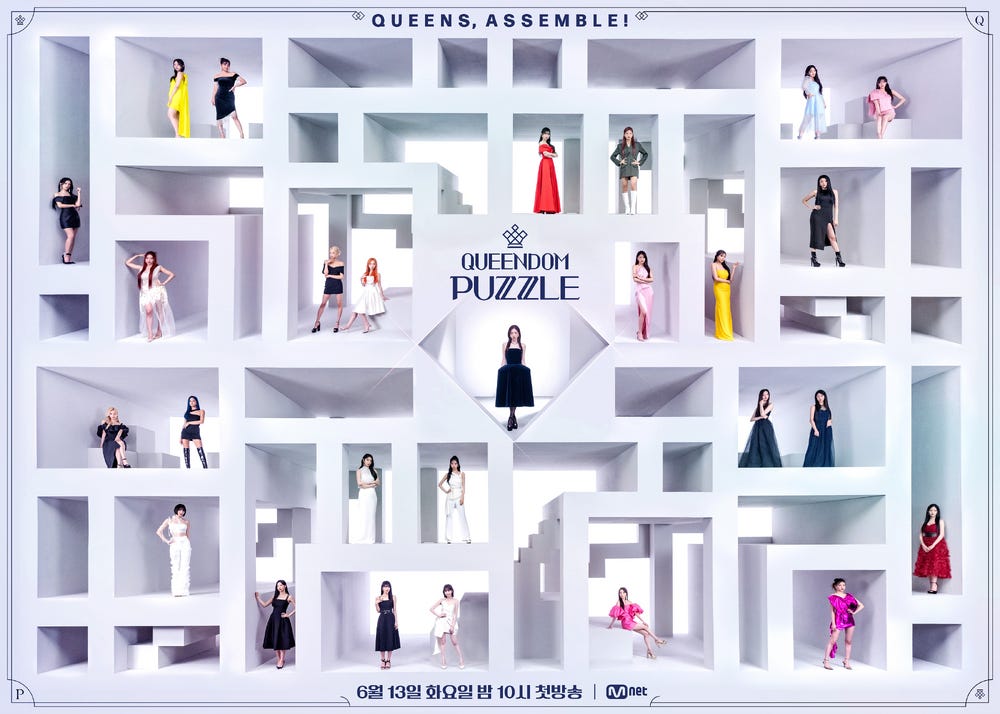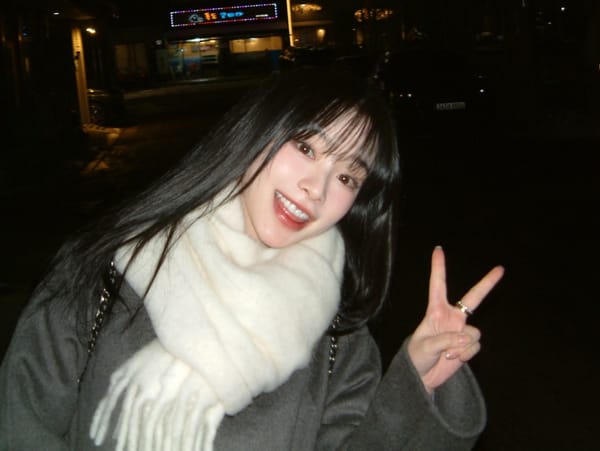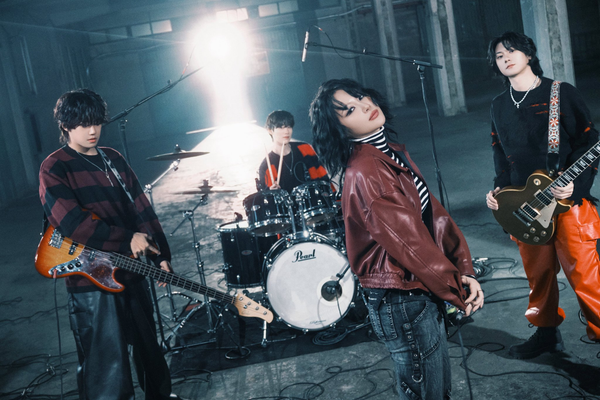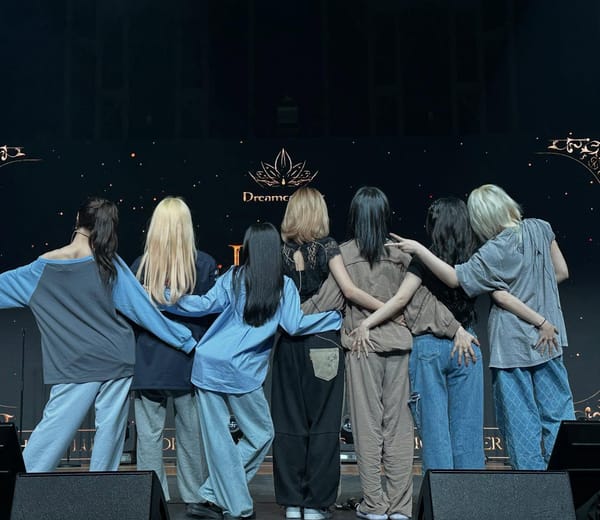MNet's "Queendom" Is The Only K-Pop Survival Show Series For Me
Even though "Queendom Puzzle" changed up their format, the wholesome and interaction-heavy series still retains its overall appeal.

Generally, I’ve never really been a fan of “reality” TV on the whole. In the West, as some of my friends became enamored with the heyday of “American Idol” or “Survivor” or other similar shows, I went to change the channel. There was just something about it that seemed a little too “produced” and somewhat scripted to make it, well, actually reality. The irony of the name never really escaped me, given that.
When I started getting into K-Pop, and everything around it, including the occasional “survival show” (a music-and-artist focused reality TV-style production that usually results in a K-Pop group comprised of top ranking contestants), this mentality didn’t change. Putting aside the entirety of the debate about the K-Pop industry’s “idol” image, parasocialism, and all of that, the shows felt even more contrived to me. It probably didn’t help that there’ve been court cases surrounding manipulation of at least one show series’ voting systems, or that many fans purport that screentime (or lack thereof) for these shows can sometimes hamstring or boost certain participants.
All that said, for me, I do realize some level of suspension of reality is somewhat required to watch these types of shows, and I’ve found that only one series allows me to do that while at the same time not making me feel like it’s trying to push me in a certain direction. “Queendom”, the MNet-produced series that has featured girl groups/members of girl groups competing against one another, has seemed cut from a different cloth than the other shows featured in the K-Pop industry that I’ve tried to watch. I’ve genuinely enjoyed the first three iterations of the show, including “Queendom Puzzle”, which ended just this month and which featured a more traditional “survival show” format for a variety of reasons.
The main reason, I think, is that “Queendom”, setting aside the end goal of the “Puzzle” iteration (which ended up with a 7-member group that will occasionally promote together), seems to prioritize interactions (mostly wholesome and friendly ones) over the overall competition. While there’s some subtle-to-blatant editing to try to create conflict or friction (K-Pop fans have referred to MNet’s tendency to do this as the “evil edit”, for example), generally everyone gets along and is happy to get to know each other.
The environment is more akin to the times I spent during my university years, where over the course of a year you’d meet, get to know, and eventually form bonds or relationships of varying degrees with your dorm/apartment or classmates. Even if every group or contestant had obviously worked hard and gone all-out during the competition portions of the show, all of the in-between is filled with funny, happy moments where the various participants are all happy to boost one another’s individual or group appeal.
That of course makes the performances themselves all the more appealing. The format of this year’s “Queendom Puzzle” prevented this from happening, but the group vs. group dynamic of the “Queendom” series meant that a trademark part of that was groups covering each other’s songs. WJSN covering a GFriend song (an indirect homage to GFriend spiritual successor and fellow contestant VIVIZ) put a new spin on a great classic, and other groups were similarly successful. It was just one of those things that sprang up in part due to contestant interactions and was just part of the appeal.
Of course, just because “Queendom Puzzle” swapped up the format a bit doesn’t mean that the spirit of those wholesome and team-based interactions wasn’t preserved when it came to stage time. Instead of established groups doing a performance, different and interesting combinations of individual contestants from disparate groups came together to smash stages and exude swag. And while I was still apprehensive overall at it turning more into a “Produce 101” type series as I linked at the beginning of this article, I’d have to say I walked away still on the “Queendom” train.

For all the competitiveness to make the final group (and thus get a little more visibility for their “home” groups) the best of the best, everyone, at least from what we could see, seemed friendly and happy to participate, regardless of placement. And even though it was hard for some of them when leaving the show or being eliminated, there did seem to be at least for the short-term some established camaraderie among the participants. In an industry as tough and sometimes packed with schedules as the K-Pop industry is, any kind of networking is probably a good thing.
Lastly, for as much as the idols benefit from a little networking on “Queendom”, I’ve always liked it just for the potential to check out music from other groups that I haven’t been following. I’ve found a group worth checking out in every season of “Queendom”, and this season was no exception - H1-KEY, for example, which featured finalist Hwiseo and high-ranking member Riina, was a group I got curious about. After having enjoyed “Rose Blossom” as a result of that, I’m really looking forward to their upcoming comeback in September. Such is the potential appeal of these sorts of shows, made even more so by how generally wholesome and not-cutthroat the “Queendom” series is. I’m looking forward to the next iteration of the show and for more talented artists that I can get to know and have fun watching.
If you’re ever curious about this series, I’d definitely recommend giving it a go on Viki if you carry a subscription.




